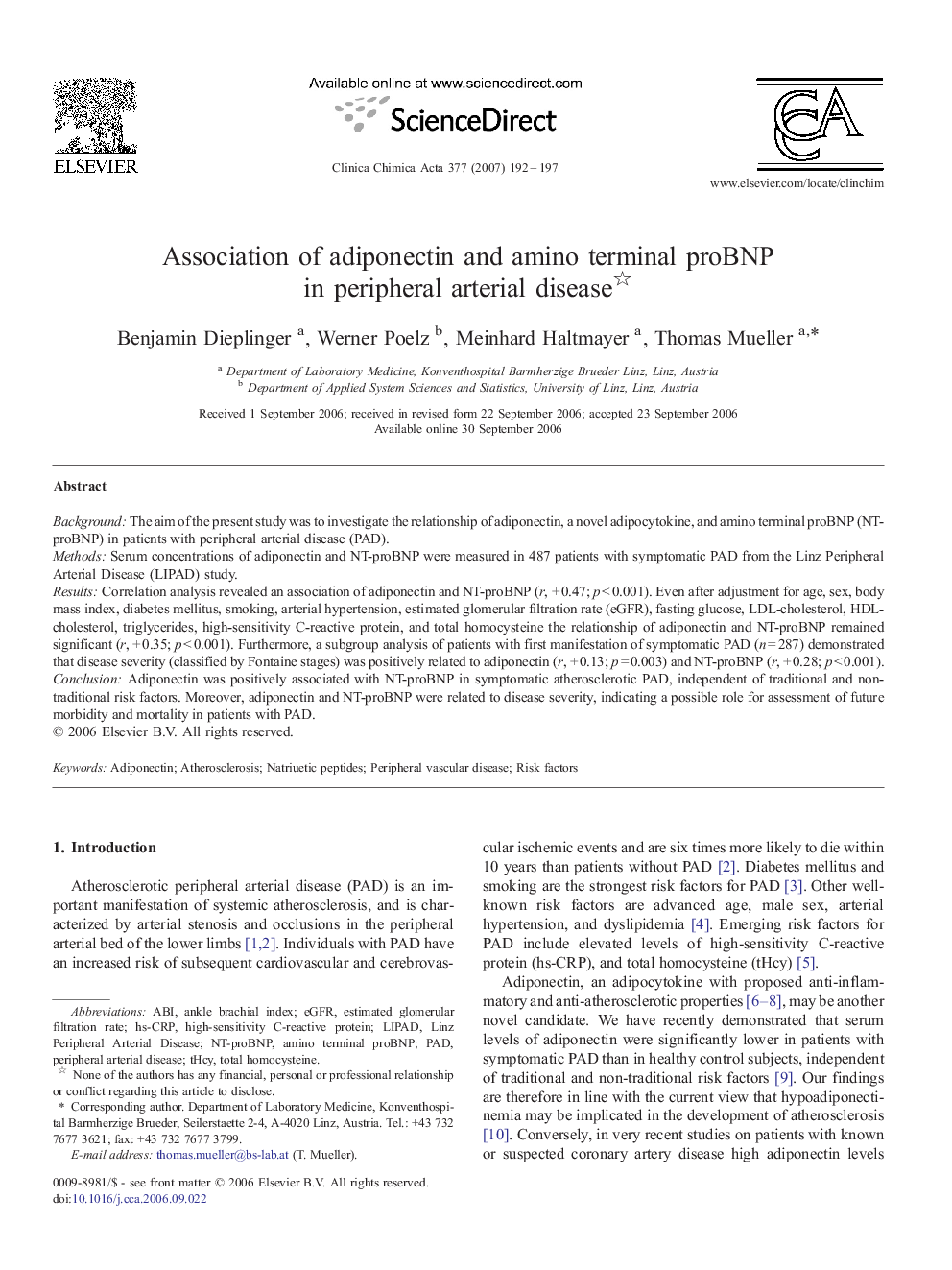| Article ID | Journal | Published Year | Pages | File Type |
|---|---|---|---|---|
| 1967703 | Clinica Chimica Acta | 2007 | 6 Pages |
BackgroundThe aim of the present study was to investigate the relationship of adiponectin, a novel adipocytokine, and amino terminal proBNP (NT-proBNP) in patients with peripheral arterial disease (PAD).MethodsSerum concentrations of adiponectin and NT-proBNP were measured in 487 patients with symptomatic PAD from the Linz Peripheral Arterial Disease (LIPAD) study.ResultsCorrelation analysis revealed an association of adiponectin and NT-proBNP (r, + 0.47; p < 0.001). Even after adjustment for age, sex, body mass index, diabetes mellitus, smoking, arterial hypertension, estimated glomerular filtration rate (eGFR), fasting glucose, LDL-cholesterol, HDL-cholesterol, triglycerides, high-sensitivity C-reactive protein, and total homocysteine the relationship of adiponectin and NT-proBNP remained significant (r, + 0.35; p < 0.001). Furthermore, a subgroup analysis of patients with first manifestation of symptomatic PAD (n = 287) demonstrated that disease severity (classified by Fontaine stages) was positively related to adiponectin (r, + 0.13; p = 0.003) and NT-proBNP (r, + 0.28; p < 0.001).ConclusionAdiponectin was positively associated with NT-proBNP in symptomatic atherosclerotic PAD, independent of traditional and non-traditional risk factors. Moreover, adiponectin and NT-proBNP were related to disease severity, indicating a possible role for assessment of future morbidity and mortality in patients with PAD.
